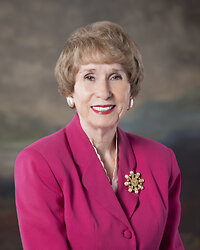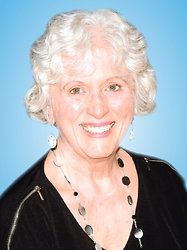The TV show To Tell The Truth features a panel trying to determine which of three contestants is telling the truth. The show opens with all three contestants introducing themselves as the same person. For example, each of them might say, "I am the CEO of Wawa." The challenge faced by the panel is to determine which of the contestants is telling the truth. After asking the contestants some very pointed questions, the panelists each guess which contestant they think is the CEO of Wawa. The final step is when the host says, "Would the real CEO please stand up?" and the actual CEO reveals his or herself.

When couples come to therapy, one partner will often complain that the other doesn't communicate. The complaining partner wants them to achieve closeness by being mutually vulnerable and honest about their feelings.
Getting couples to communicate does not necessarily solve the problem of closeness. The truth is that they communicate all the time through either verbal or non-verbal conveyance. For instance, they are communicating even when they refuse to talk to each other. However, this is not the type of communication that brings closeness or intimacy.
The real problem is not a failure to communicate but what is being communicated.
We all know people who avoid intimacy and closeness by not revealing their true feelings and thoughts. Instead, they tell us what they think we want to hear; they pretend to be whoever they think they have to be to please us and avoid conflict. They don't value their own opinions and feelings enough to be their own person. To avoid closeness, they wear many disguises. They are like actors who play different roles and wear many masks in order to keep others at arm's length.
They are like a man who looks in the mirror and, once he walks away, immediately forgets what he looks like! There is no permanent identity because they continually present a different face in each situation. After years of someone relating to us in this way, not only do we not know who that person is, but they don't know either.
It becomes a trust issue. How can we believe or trust someone who only tells us what they think we want to hear? How do we know when that person is being honest and upfront? It is difficult to distinguish between what is a false presentation and what is an honest disclosure. Such people lack credibility and integrity.
They are like a man who looks in the mirror and, once he walks away, immediately forgets what he looks like! There is no permanent identity because they continually present a different face in each situation. After years of someone relating to us in this way, not only do we not know who that person is, but they don't know either.
Would the Real YOU Stand Up!
It becomes a trust issue. How can we believe or trust someone who only tells us what they think we want to hear? How do we know when that person is being honest and upfront? It is difficult to distinguish between what is a false presentation and what is an honest disclosure. Such people lack credibility and integrity.
Then there are people we feel close to, people we trust because they disclose what they honestly feel and think. They are keenly aware of what goes on inside themselves and choose to share themselves openly, even under the pressure of conformity and sameness. They are upfront and honest, even at the risk of answering more questions, upsetting someone's feelings, or triggering disagreements. They trust themselves and the relationship enough to be vulnerable.
Would the real you stand up!
Would the real you stand up!
Dr. William E. Austin is a licensed psychotherapist and holds a Doctor of Divinity degree. He is a therapist with Tidewater Pastoral Counseling Services . He is well known for his warmth and sense of humor. His book, Creating Our Safe Place - Articles on Healthy Relationships, can be purchased through www.amazon.com.
Tidewater Pastoral Counseling: 623-2700
CURRENT COLUMNS
Children First 
Dandelion Timeby Becky AdamsRelationships 
When Your Security Blanket is in the Dryerby Dr. Bill AustinOn The Front Porch With You 
Memories of Homeby Rob LauerPublisher’s Point 
Time To Moveby Jean Loxley-Barnard
